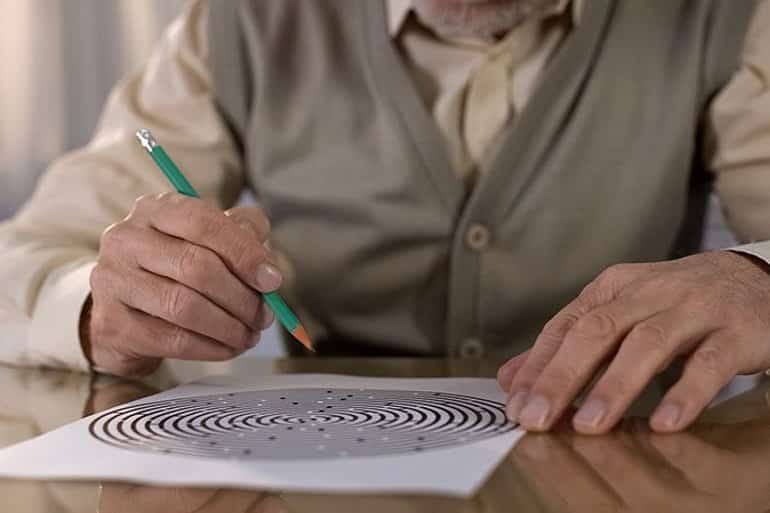Summary: Vibration training not only improved physical symptoms associated with multiple sclerosis, but it also improved cognitive functions including memory capacity and executive function.
Source: Georgia State University
Multiple sclerosis (MS) is a chronic neurological disease that affects the body’s central nervous system. It can limit a person’s mobility, impair physical and cognitive functions, and increase the risk of falling, collectively compromising quality of life.
Cognitive impairment has been particularly difficult for researchers to address, with few intervention strategies proven effective in preserving or restoring cognitive functions for people with MS.
Associate Professor Feng Yang worked with Francois Bethoux from the Cleveland Clinic Foundation and Georgia State University faculty members Pey-Shan Wen and Yichuan Zhao to study whether vibration training – an intervention used to improve physical function for people with MS – could also improve cognitive function and overall quality of life.
Vibration training requires individuals to sit or stand on a platform that vibrates at a fast pace but with a small movement for a specific amount of time.

For Yang’s study, believed to be the first of its kind, 18 adults with MS completed assessments to determine their perceived disability status, cognitive function and quality of life. Then, some of the participants attended vibration training three times a week for six weeks.
The study, published in the International Journal of MS Care, found that the vibration training improved not only physical abilities, such as increased walking speeds, but also cognitive functions, such as memory capacity and executive function.
“Despite the limitations – such as a small sample size, narrow MS types and disability levels, etc. – this study suggests that a six-week vibration training course could improve cognitive functions and quality of life among people with MS,” Yang and his colleagues wrote. “The goal of rehabilitation in people with MS is to decrease the impact of MS on personal activity, function and social participation to allow people with MS the highest possible independence and quality of life.”
About this multiple sclerosis research news
Author: Press Office
Source: Georgia State University
Contact: Press Office – Georgia State University
Image: The image is credited to Georgia State University
Original Research: Closed access.
“Effects of Vibration Training on Cognition and Quality of Life in People with Multiple Sclerosis” by Yang, F., Wen, P., Bethoux, F. and Zhao, Y. International Journal of MS Care
Abstract
Effects of Vibration Training on Cognition and Quality of Life in People with Multiple Sclerosis
Background: Multiple sclerosis (MS) detrimentally affects cognition and quality of life (QOL). Interventions that can improve cognitive deficit and QOL in people with MS are desired. This pilot study investigated the possible effects of vibration training on improving cognition and QOL in people with MS.
Methods: Eighteen adults with MS were randomized into two groups: training and control. The training group underwent 6 weeks of vibration training, and the control group maintained their normal lifestyle throughout the study. In both groups, before and after the training course, the disability status was evaluated by the Patient-Determined Disease Steps scale and the Multiple Sclerosis Functional Composite (MSFC), cognitive function was assessed by the Behavior Rating Inventory of Executive Function (BRIEF) and the Selective Reminding Test (SRT), and QOL was gauged by the 36-item Short Form Health Survey (SF-36).
Results: The training was well accepted by the participants, and no major adverse event was reported. All participants finished the entire protocol. Compared with the control group, after the training the training group showed greater improvements in MSFC score, Metacognition Index score of the BRIEF, SRT score, and physical domain score of the SF-36.
Conclusions: These results suggest that vibration training could be an effective alternative training paradigm to enhance cognition and QOL in people with MS, and they provide an encouraging base to conduct a large-scale clinical trial.







